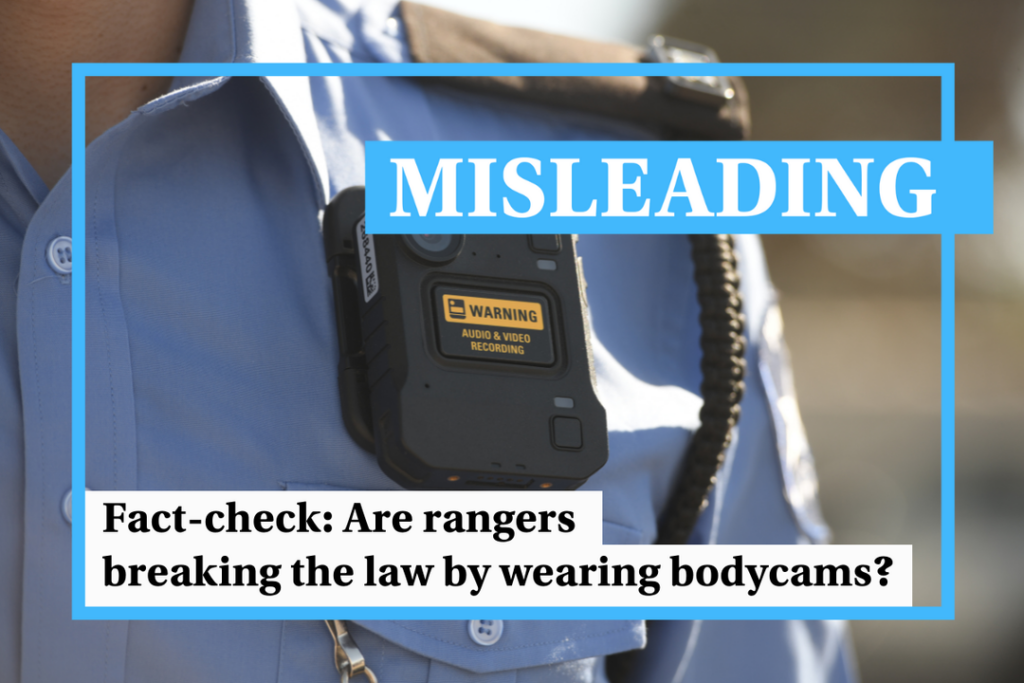In a statement published to their social media pages on 2 September, FKNK, Malta’s largest bird hunting lobby group claimed that only police officers are authorised to wear bodycams.
The group made the claim after a meeting with the Data Protection Commissioner and the justice minister, suggesting the Malta Ranger Unit, a volunteer group patrolling several of Malta’s natural parks, could be breaking data protection laws by carrying bodycams when going about their duties.
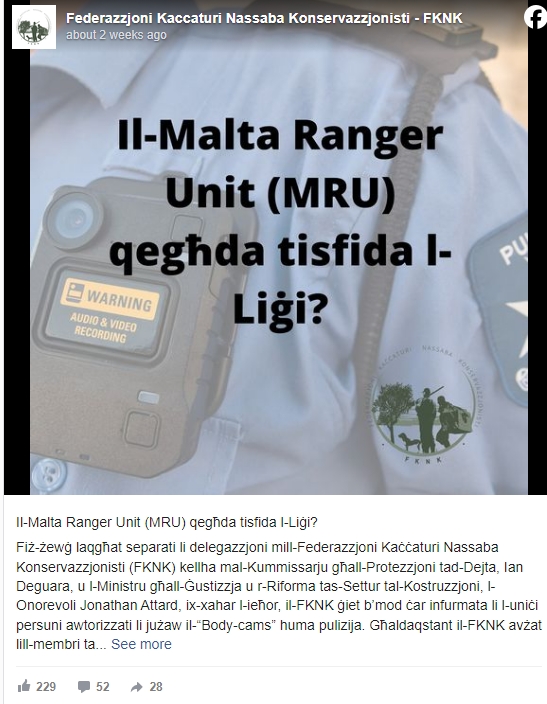
The Malta Ranger Unit, who sometimes flag illegal activities carried out by hunters, immediately retorted saying that it too held a meeting with the Data Protection Commissioner, who “did not order any changes to our discussed methods” and described FKNK’s statement as “misinformation”.
Is it true that only police are allowed to wear bodycams?
This is only partly true.
Police are the only public authority authorised to wear bodycams, but that doesn’t mean that private individuals or NGOs (such as the Malta Ranger Unit, for instance) are forbidden from wearing them too.
Data Protection Commissioner Ian Deguara told Times of Malta that public authorities, such as the police, need to abide by slightly different privacy regulations to those regulating private citizens or NGOs.
In practice, Deguara says, public authorities can only wear a bodycam if there is “a clear basis at law” empowering them to do so and containing “specific provisions” which talk about how they will be storing and using recordings.
The police’s use of a bodycam is covered by the criminal code (article 346(1), if we’re being finicky), as well as other provisions in the Police Act, the law that regulates the police force.
Other than the police, no other public authority in Malta is covered by a similar legal provision that would allow its officers to wear bodycams. So, for instance, Transport Malta inspectors cannot wear bodycams, nor can OHSA officers, or Housing Authority inspectors. Even LESA officers are forbidden from recording and processing personal data.
If any of these entities want to arm their officers with bodycams, they’re going to have to draft a law to regulate it.
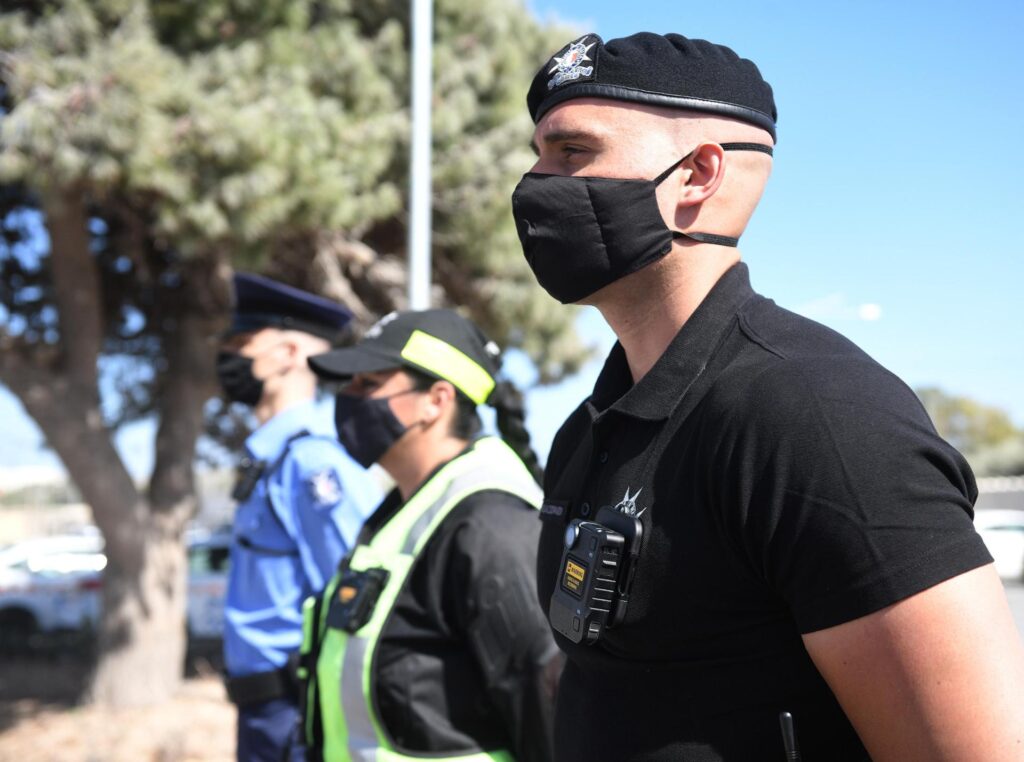
What about NGOs?
Things are a little different when it comes to anyone who isn’t a public authority, including NGOs, private businesses and individuals.
Unlike public entities, the rest of us don’t need to have our use of bodycams (or any other recording device, including security cameras, dashcams, mobile phones or cameras) specifically regulated or authorised by law.
We simply need to abide by GDPR laws.
This doesn’t mean that people can freely record and share footage of other people at will, but they need to have a legitimate reason to justify why they are doing so.
Or, as Deguara drily puts it, people are “required to legitimise the processing activity on the strength of a valid legal ground pursuant to article 6(1) of the GDPR”.

What is article 6(1) of the GDPR?
In short, this lists a series of reasons why somebody might want to store and process personal data, such as video recordings.
So, for instance, maybe the person being filmed has given their consent, or perhaps you have to film to comply with a legal obligation or to meet contractual obligations by which you’re bound.
The law also contains slightly more nebulous reasons why somebody might have a good reason to record, most pertinently because it is “necessary for the purposes of the legitimate interests pursued by the controller”.
In simple terms, a person who is carrying a recording device such as a bodycam could be perfectly justified in doing so if they can demonstrate that doing so meets a legitimate interest.
What is a legitimate interest?
As is often the case with legalese, what constitutes a legitimate interest is infuriatingly hazy.
The European Commission says, rather cryptically, that “as a company/organisation, you often need to process personal data in order to carry out tasks related to your business activities”. This would, in theory, make your use of personal data legitimate.
Deguara confirmed with Times of Malta that NGOs such as MRU could potentially use this logic to argue that their use of bodycams is in line with their core activities, namely that of safeguarding land and protecting it from possible illegalities.
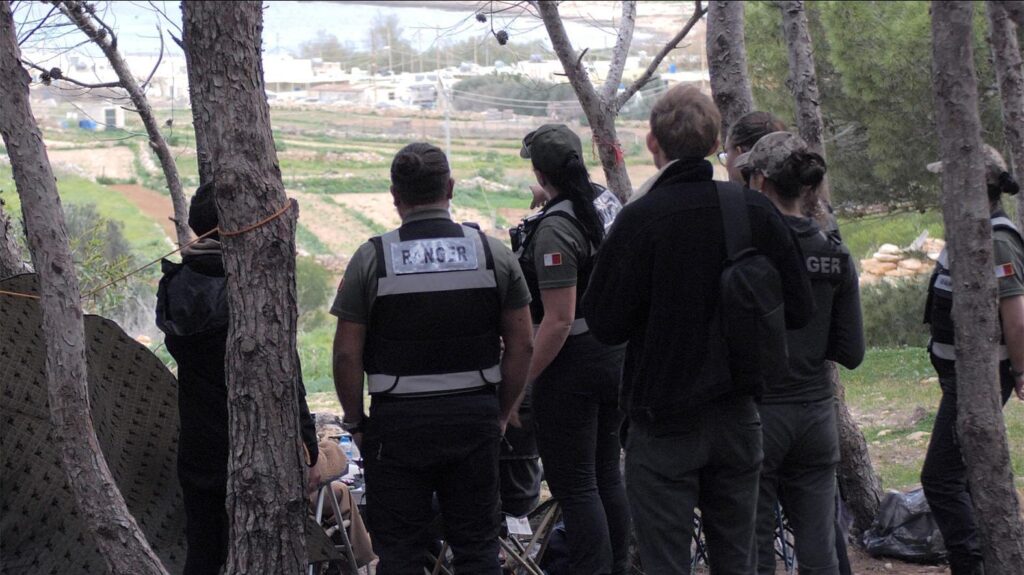
So can rangers just record at will?
No. Even if their use of bodycams may be acceptable in principle, they are still bound by all the other restrictions that privacy laws impose, including making sure that the recordings are stored securely and shared responsibly.
MRU argue that they already do take these measures into consideration, with a spokesperson telling Times of Malta that rangers don’t use their bodycams indiscriminately, but only turn them on once they spot a possible illegality.
“We also always film in public spaces, unlike public authorities who are allowed to enter private spaces,” the spokesperson said, adding that MRU always blurs faces to hide identity whenever sharing footage.
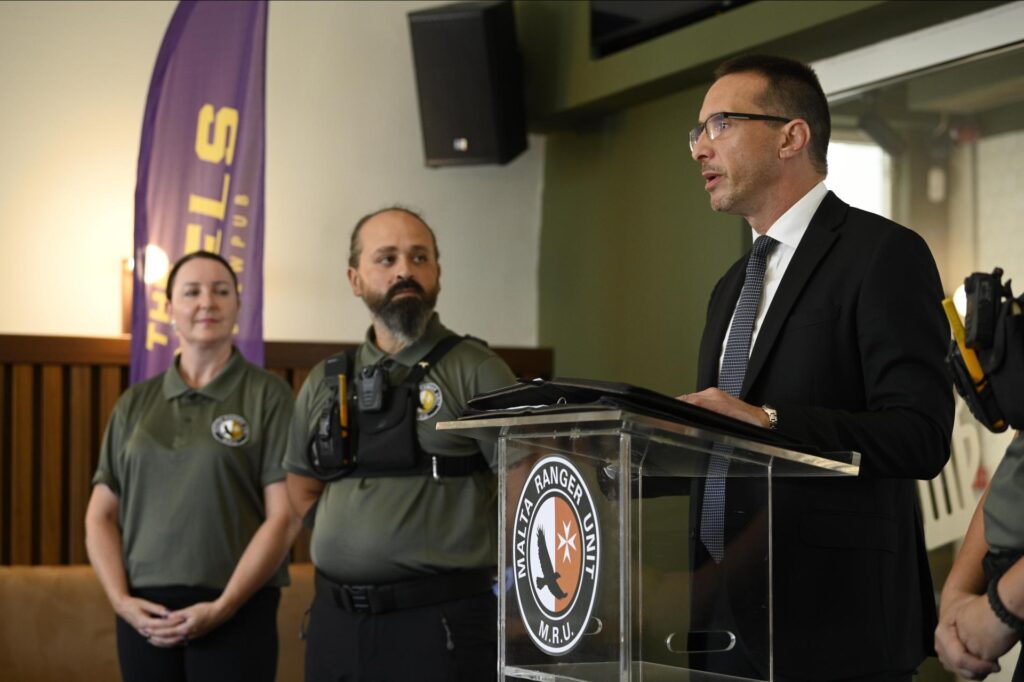
When contacted for comment, FKNK said that its initial statement was sparked by the “mostly the continuous surveillance and filming of private individuals who are simply enjoying their pastime in their own property”.
“The use of body cams by individuals who do not form part of law-enforcement entities is the latest in a series of acts which are only meant to intimidate hunters in the countryside,” an FKNK spokesperson said.
The spokesperson added that FKNK’s stance is “not intended to hide illegalities or hinder law enforcement” but that ” law enforcement activities should only be carried out by officers who are authorised to do so by law, while the privacy of citizens should be respected anywhere,” even when practicing their favourite pastime.
“This confrontation is unwarranted and other EU countries have laws in place to avoid such situations,” the spokesperson said.
No blanket provision, case-by-case decisions
Ultimately, Deguara says, whether MRU – or anybody else – has a right to use a bodycam in a particular situation can only determined on a case-by-case basis once a complaint is filed.
Since there is no blanket provision either allowing or forbidding NGOs or private citizens from recording and sharing footage, different complaints may result in different outcomes.
So MRU members could potentially be found to be legitimately using a bodycam in one instance, but breaking GDPR laws in another.
Curiously, NGOs such as MRU are not the only ones who face this conundrum.
That dashcam you have installed in your car and that video doorbell you recently purchased are all subject to the same legal provisions, so you’d better brush up on your GDPR laws if you ever plan to share any of that footage.
Verdict
The police force is the only public authority that is legally authorised to wear bodycams, but privacy laws apply differently when it comes to private individuals and NGOs.
While public authorities need to be authorised to carry bodycams through a dedicated legal provision, private citizens and NGOs don’t need any similar authorisation.
But anybody using a bodycam (or any other recording device) needs to have a valid reason to do so, if they want to avoid breaking privacy laws.
There is no blanket provision forbidding – or allowing – NGOs, such as MRU, from donning bodycams, so whether MRU is justified in its use of bodycams would need to be determined on a case-by-case basis.
In any case, anybody wearing a bodycam would still need to abide by all other privacy laws on how personal data is stored and shared.
The claim is therefore misleading as although the claim may, in itself, be partly or entirely true, it is presented in a manner that is not representative of the facts within a broader context.
The Times of Malta fact-checking service forms part of the Mediterranean Digital Media Observatory (MedDMO) and the European Digital Media Observatory (EDMO), an independent observatory with hubs across all 27 EU member states that is funded by the EU’s Digital Europe programme. Fact-checks are based on our code of principles.
Let us know what you would like us to fact-check, understand our ratings system or see our answers to Frequently Asked Questions about the service.

